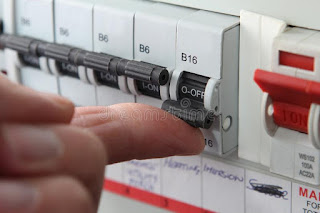How to install a circuit breaker ?

A circuit breaker is a very important piece of equipment in any home. It helps protect your appliances and electrical wiring from overheating and possible fire. In this blog post, we will teach you how to install a circuit breaker in your home. We will also provide some helpful tips on how to choose the right breaker for your needs. So, if you are interested in learning more about circuit breakers, keep reading! Installing a circuit breaker is a task that should only be attempted by a qualified electrician. However, if you are comfortable working with electricity and have some basic knowledge of how to safely handle electrical wiring, you can probably install it without any problems. In this article, we will show you how to install a circuit breaker in your home. We will also explain why it is important to have a circuit breaker in your home. So, if you are considering installing a circuit breaker in your home, please keep reading. To begin, you will need to locate the breaker pa...
